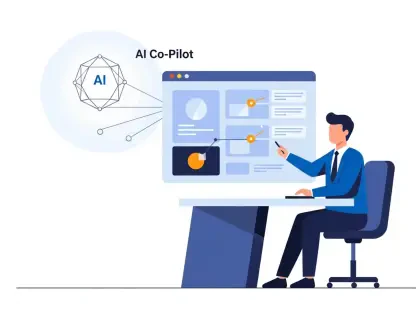The healthcare industry is undergoing a significant transformation, driven by the integration of automation technologies that have the potential to reshape the way services are delivered and improve overall patient care. Initially focused on simplifying administrative tasks, automation’s scope has expanded dramatically to include sophisticated tools that refine diagnostic processes, enhance operational efficiency, and foster better patient engagement. This article delves into the development, applications, benefits, and challenges of automation in healthcare, providing a comprehensive analysis of its transformative potential.
The Evolution of Automation in Healthcare
Initially, automation in healthcare was limited to simplifying administrative tasks such as document management, streamlining processes that were traditionally time-consuming and labor-intensive. However, with advancements in technology, the scope of automation has expanded significantly. Modern tools like Clinical Decision Support Systems (CDSS) and Intelligent Automation (IA) are now crucial in refining diagnostic processes, improving operational efficiency, and fostering better patient engagement. This evolution underscores the healthcare industry’s commitment to leveraging technology for superior outcomes, moving beyond basic administrative tasks to more complex clinical applications.
Robotics and artificial intelligence (AI) have further revolutionized healthcare automation by integrating cutting-edge technology into surgical procedures and diagnostics. Robotic systems are increasingly used in surgical settings, providing greater precision and faster recovery times for patients. These systems allow for minimally invasive surgeries, resulting in reduced complications and shorter hospital stays. AI-driven algorithms, on the other hand, play a pivotal role in early disease detection through predictive analytics, which enhances clinical outcomes and addresses workforce shortages by handling repetitive or labor-intensive tasks. This shift allows healthcare professionals to focus more on patient-centric care, improving overall care quality and patient satisfaction.
Applications of Automation in Healthcare
Automation is being applied across various aspects of the healthcare industry to offer transformative solutions to long-standing challenges that have plagued the sector for years. In revenue management, automated systems streamline billing and payment processes, significantly reducing errors and improving cash flow efficiency. This not only ensures that healthcare organizations are paid promptly but also minimizes the administrative burden on staff, allowing them to focus on more critical tasks. Diagnostic and therapeutic automation harness data-driven insights to enhance the precision of diagnoses and treatment plans, leading to better clinical outcomes and more personalized care.
Moreover, workflow automation significantly boosts operational efficiency by automating routine tasks, such as patient scheduling, inventory management, and data entry. This enables healthcare professionals to spend more time on patient care rather than administrative duties. The advent of chatbots has revolutionized patient interaction by facilitating timely communication, providing essential information, and improving patient engagement. Chatbots can handle a range of tasks, from answering basic queries to scheduling appointments and sending reminders, thus enhancing the overall patient experience. These diverse applications not only optimize healthcare operations but also significantly enhance patient engagement and satisfaction.
Benefits of Automation in Healthcare
The benefits of automation in healthcare are compelling and multifaceted, offering a range of advantages that contribute to improved efficiency, accuracy, and cost savings. Automation increases efficiency by reducing the time spent on manual tasks, allowing healthcare providers to focus on delivering quality care to patients. This is particularly important in a sector where time is often a critical factor in patient outcomes. It enhances accuracy by minimizing human errors in diagnostics and treatment, resulting in more reliable and precise outcomes. Automation drives cost savings by streamlining processes, which benefits both healthcare organizations and patients by reducing overhead costs and improving resource allocation.
Additionally, automated systems help maintain regulatory compliance, such as adherence to HIPAA guidelines, thus reducing risks and ensuring smooth operations. Compliance with regulatory standards is essential for protecting patient data and maintaining the integrity of healthcare services. Together, these advantages underscore the transformative potential of automation in advancing healthcare delivery. By adopting automated solutions, healthcare organizations can streamline operations, enhance patient outcomes, and achieve substantial cost savings. The integration of automation into healthcare practices promises not only to transform the industry but also to set new standards for care quality and operational efficiency.
Ethical and Legal Challenges of Automation
Despite the significant advantages presented by automation, its integration into healthcare comes with ethical and legal challenges that must be carefully navigated to ensure patient safety and compliance with regulatory standards. Ensuring the accuracy and reliability of automated systems is critical, as errors in these processes could jeopardize patient safety and lead to adverse outcomes. Rigorous testing and validation of automated systems are essential to prevent such risks and to maintain the trust of both healthcare professionals and patients. Transparency in decision-making processes and the involvement of human oversight are crucial to address ethical concerns and ensure responsible use of automation technologies.
Legal considerations, such as compliance with intellectual property laws and publishing agreements, further complicate the integration of automation technologies into healthcare settings. Healthcare organizations must ensure that they comply with these legal requirements to avoid potential litigation and financial penalties. Additionally, fostering trust among healthcare professionals is vital for the successful adoption of automation technologies. Transparent decision-making and effective communication about the benefits and limitations of automation are necessary to ensure that these systems are used effectively and responsibly, aligning with the ethical standards of the healthcare profession.
Implementation Challenges and Overcoming Resistance
One of the primary obstacles to implementing automation in healthcare is the resistance to change among healthcare staff, who may be skeptical of new technologies and their impact on traditional workflows. This resistance can slow the adoption of new technologies and hinder the potential benefits that automation can bring. Addressing this challenge requires comprehensive training programs and clear communication about the benefits and limitations of automation, helping to overcome skepticism and build confidence among healthcare professionals. Providing adequate support and resources for staff during the transition period is essential to ensure a smooth implementation process.
Furthermore, the high initial costs and complexities of deploying automation technologies create financial and logistical barriers for healthcare organizations. While the long-term benefits of automation can lead to significant cost savings, the upfront investment required for purchasing and implementing these technologies can be prohibitive. Healthcare organizations must carefully consider the financial implications and develop strategic plans to allocate resources effectively. By fostering collaboration among technology providers, regulatory authorities, and healthcare professionals, the industry can overcome these hurdles and fully realize the benefits of automation. Addressing these challenges is crucial to ensuring that automation is implemented ethically and effectively, aligning with the needs of both providers and patients.
Future Outlook for Automation in Healthcare
The healthcare sector is experiencing a major transformation thanks to the integration of automation technologies. These advancements have the potential to significantly alter service delivery and enhance patient care. Initially designed to simplify administrative tasks, the role of automation has expanded considerably. Today, it encompasses advanced tools that refine diagnostic procedures, boost operational efficiency, and promote better patient engagement. This comprehensive article explores the development, applications, benefits, and challenges faced by automation in healthcare. It offers an in-depth analysis of how these technologies are reshaping the industry. By improving the accuracy and speed of diagnostics, streamlining operations, and enhancing patient interactions, automation holds promising potential for the future of healthcare. However, the integration of such technologies also brings its own set of challenges, including the need for significant investment, training, and changes in workflow processes. Despite these hurdles, the transformative potential of automation in healthcare is undeniable, signaling a new era in medical care.









